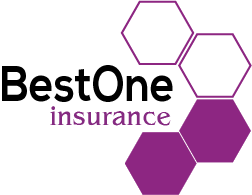Do you need flood insurance if you don’t live in a high-risk flood zone? It’s a question that many homeowners may ponder. While flooding may seem remote if you’re not in an area prone to such disasters, it’s important to consider the potential consequences and benefits of flood insurance.
Even if you don’t live in a high-risk flood zone, you may still be vulnerable to flooding under certain circumstances. Before you dismiss the idea, let’s explore the factors that could make flood insurance a wise investment for your home.
Understanding Flood Risk Zones
To understand flood risk zones, it’s important to know your area’s different levels of vulnerability. Flood risk mapping plays a crucial role in identifying these zones. These maps are created by analysing factors such as historical flood data, topography, and rainfall patterns. By studying these maps, you can determine the likelihood of your property being affected by floods.
Furthermore, understanding flood risk zones allows you to mitigate potential damages proactively. Flood mitigation measures are actions taken to minimise the impact of flooding on properties and communities. These measures include building floodwalls, levees, or barriers to divert floodwaters, constructing flood-resistant buildings, and implementing proper drainage systems.
Potential Consequences of Flooding
Flooding can have significant consequences for both individuals and communities. The financial protection you may need during a flood could be protected with proper insurance coverage. The aftermath of a flood can result in extensive property damage, leading to expensive repairs or even the need for complete rebuilding.
In addition to repairing or replacing your home, you may also face the burden of replacing damaged personal belongings and furniture. These expenses can quickly add up without flood insurance and cause significant financial strain.
Furthermore, the consequences of flooding extend beyond just the financial aspect. Displacement from your home can be emotionally and psychologically distressing. The disruption of your daily life and the uncertainty of when you may be able to return home can take a toll on your well-being. Additionally, communities impacted by flooding often suffer from a loss of infrastructure and services, such as roads, schools, and hospitals, which can further exacerbate the recovery process.
Benefits of Having Flood Insurance
Having flood insurance provides essential financial protection in the event of a flood, ensuring that you can mitigate the potential consequences and recover more effectively. While living in a non-high-risk flood zone exempts you from the need for flood insurance, it’s important to consider the benefits it offers.
One of the main advantages is the cost of premiums. Flood insurance premiums are typically affordable, especially compared to the potential expenses you may face if a flood damages your property. You can protect yourself from flood damage’s potentially devastating financial burden by paying a relatively small premium.
Another benefit of having flood insurance is coverage limits. Unlike other insurance policies, flood insurance provides coverage specifically for flood-related damages. This means you won’t have to rely on other policies, such as homeowner’s insurance, which may not cover flood damage. With flood insurance, you can have peace of mind knowing that you have coverage up to the specified limits, ensuring you can recover financially after a flood.


